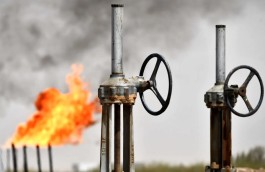Oil tanker chartering costs are expected to rise if the OPEC+ alliance follows through on its pledge to end production cuts, after oil shipping costs and tanker stocks surged amid the escalating conflict between Israel and Iran. The escalation of the conflict could prompt traders in some parts of the world to urgently secure their crude needs.
On September 5, eight OPEC+ members — Saudi Arabia, Russia, Iraq, the United Arab Emirates, Kuwait, Kazakhstan, Algeria and Oman — agreed to extend their additional voluntary cuts of 2.2 million barrels per day (bpd) for two months until the end of November, according to a statement issued by the alliance at the time. The cuts will then be phased out on a monthly basis starting from December 1, 2024. The statement reaffirmed the flexibility to temporarily suspend or reverse the adjustments as necessary.
Expected jump next year
Oil tanker utilization could rise to 90% next year if OPEC+ follows through on its pledge to scrap production cuts, according to a research note by analysts at Jefferies, according to Bloomberg.
The operating rate of oil tankers will be higher than ever during that period, and the revenues of large tankers are expected to rise to about $100,000 per day, due to the increased demand for oil transportation.
Jefferies also expects that by 2027, large amounts of oil stocks will be used, leading to a significant reduction in oil transportation costs.
Over the past week, earnings from Aframax vessels, which are used to transport 700,000 barrels of U.S. oil to Europe, have jumped 249% to about $58,000 a day, according to the Baltic Exchange in London, Bloomberg reported.
These ships are used on relatively short-distance international voyages, often making them the ideal choice for meeting immediate demand for oil from refineries.
Reports from ship brokers of heavy charter activity in the mid-sized tanker segment from the U.S. Gulf market have pushed prices higher, Jefferies analysts wrote in a note. Middle East tensions are playing a role to some extent in booking cargoes, perhaps earlier than usual.
The overall valuation of Aframax vessels on the Baltic Exchange doubled last week to just over $42,000 a day. Swissmax tankers saw a 56% increase to $36,000 last week. Very large crude carriers, the largest class of vessels for which the exchange publishes prices, gained 10%.
Confronting Israel and Iran
While Iran's attack on Israel has not yet led to any disruption to oil flows, the price of crude oil rose about 8% last week, the biggest gain since early last year.
Israel and Iran, as well as Tehran's proxies in Lebanon, Gaza and Yemen, have been locked in a confrontation over the past year, raising fears of a full-scale conflict that could draw in other countries.
The Middle East accounts for about a third of the world’s crude oil supplies. Iran has been pumping about 3.3 million barrels of crude a day in recent months, making it OPEC’s third-largest producer.
Owners are putting pressure on prices amid heightened geopolitical tensions, analysts at Clarksons Securities, including Frode Morokidahl, wrote in a research note. “The increase is in line with the usual seasonal rise as winter approaches, supported by a strong market characterised by limited supply growth and heightened geopolitical risks,” they added.







































